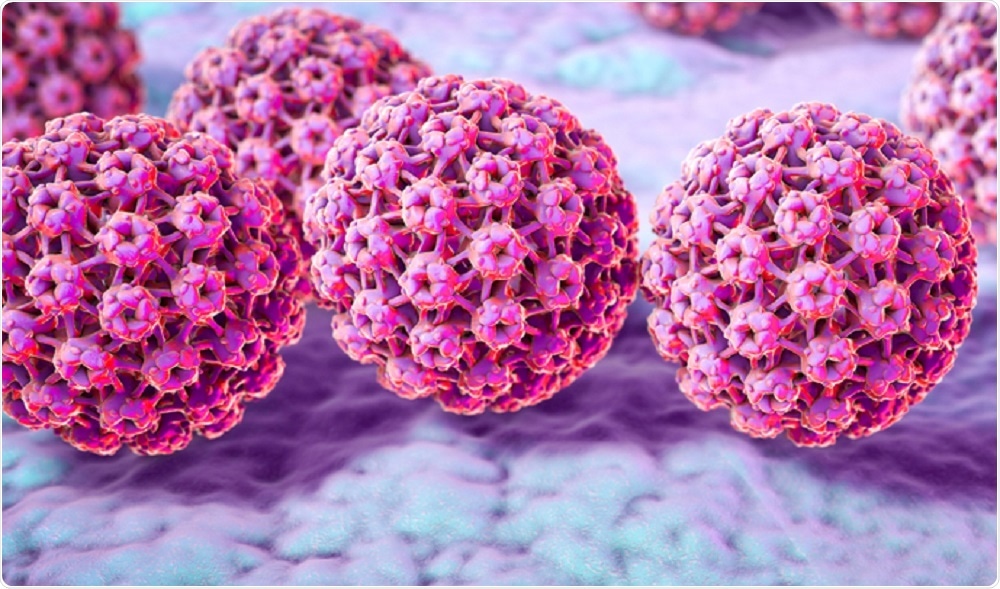
Australia will soon become the first country to eradicate cervical cancer
According to an announcement from the International Papillomavirus Society, Australia could soon become the first country to eradicate cervical cancer.
The announcement is based on research results published this week, that describe the effectiveness of the free HPV vaccine program offered by all Australian schools.
The vaccine reduced cervical cancer rates extensively, and as a result, the disease will soon be eradicated.
 Human Papilloma Virus (HPV). Image Credit: Kateryna Kon / Shutterstock.
Human Papilloma Virus (HPV). Image Credit: Kateryna Kon / Shutterstock.Professor Suzanne Garland from the Royal Women’s Hospital and study leader said that in the next four decades the numbers are going to come down to a “few”.
She explained that 99.9 percent of cervical cancers are the result of infection with the HPV (human papillomavirus) which is sexually transmitted.
The vaccine programme began in 2007 for girls aged between 12 and 13 years and was later extended to all boys in 2013.
Two doses of the vaccine could also be taken by girls and boys under the age of 19 for free.
The vaccine uptake was 78.6 percent among 15-year-old girls and 72.9 percent among 15-year-old boys in 2016.
This resulted in the dramatic reduction in HPV infection among women aged between 18 and 24 from 22.7 percent in 2005 to 1.1 percent only in 2015.
According to Garland, the numbers of children who have been vaccinated are only going to rise, providing what is called “herd protection”, where the majority of the population is protected against the infection, reducing the likelihood of the un-vaccinated becoming infected.
Professor Ian Frazer, the co-inventor of the vaccine from the University of Queensland has called for all older women who have not been vaccinated to be regularly screened for HPV.
He said that come December the government would provide advanced screening tests for cervical cancer that could detect the disease early.
Screening for cervical cancer involves a Pap smear test every two years.
Last year this test was replaced by an advanced test that can detect HPV strains that can lead to cervical cancers even before the cancer has appeared.
This advanced test would require women to take the test once in five years after they are 24 years of age until they reach 74.
The new vaccine could be effective against more HPV strains, said Frazer.
According to the report, Australia is doing well in terms of cervical cancer eradication but there are still far too many countries in the developing world where rates of cervical cancer are high.
Both Frazer and Garland agree that a wider coverage of the vaccine among young girls aged between 12 to 14 years is the only way of eradicating cervical cancer.
Source:
The Royal Women’s Hospital press release, and the report itself.






















.png)









No hay comentarios:
Publicar un comentario